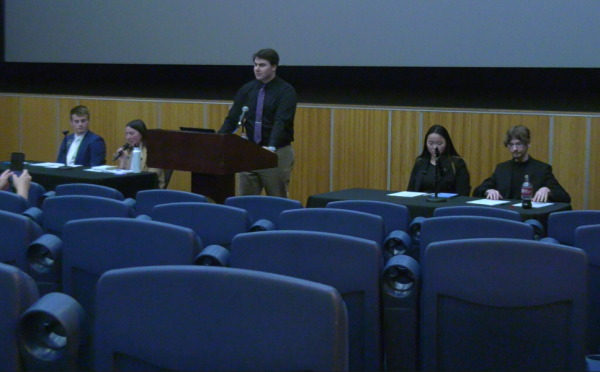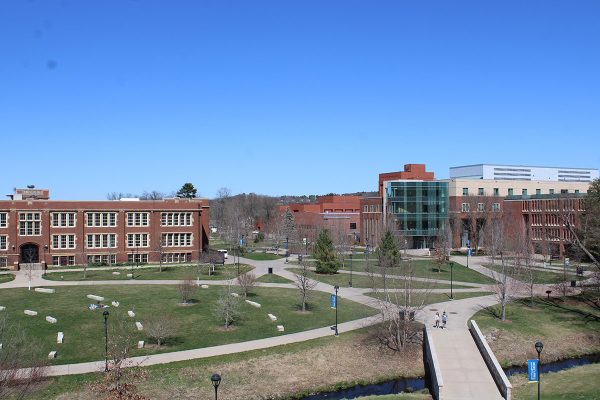Xcel Energy looks to hike fixed rates for electricity
Change could reverse decades of state energy conservation efforts
More stories from Gabriel Lagarde
Xcel Energy is awaiting approval to more than double the fixed rates it charges its customers for their electric bill each month.
If the state approves Xcel Energy’s proposal, residents of the Chippewa Valley will see their base rates rise from $8 a month to $18 a month.
Michael Vickerman, a representative from Renew Wisconsin, said in a forum the Progressive Students and Alumni held at the Woodland Theatre on renewable energy Sept. 22 that this is a 125 percent hike threatening lower-income members of the community.
“At a certain point, if you’re a low-energy user, the mandatory monthly payment is higher than what you pay today before you use your first kilowatt hour,” Vickerman said. “That is the threat that’s out there.”
While the variable rate – the amount charged for each kilowatt hour of use – will drop from 12 cents to four cents an hour, the new policy discriminates against low-income consumers who typically use less power than the average customer, consultative journalist and renewable energy expert Ben Poulos said.
Xcel Energy is among a host of utilities across 12 states who are trying to charge their customers more in order to counteract declining energy demands over the last decade, Poulos said.
Every state has rejected these proposals with the exception of Wisconsin, where the Public Service Commission approved rate hikes for the Wisconsin Public Service Corps by 80 percent last year.
The rate hikes may not end there. Utilities have proposed steeper hikes in the past, and there is some indication they will continue to push for higher mandatory charges even if current proposals are approved. Madison Gas & Electric initially outlined a plan to charge a $49 fixed rate by 2016 and up to $69 by 2017 before public backlash led them to scale back and propose the current hike to $18 per month.
Not only do these hikes hurt the community, they discourage the use of alternative energy sources such as solar panels, LED lights and hydropower because there is no incentive for the customer to do so, Poulos said. He said the impact of higher fixed rates is similar to making electricity consumption an “all you can eat buffet,” where the price of admission makes the amount purchased nonconsequential.
For a state that spends $16 billion annually to import energy, higher fixed rates may reverse decades of progress in energy sustainability and increase Wisconsin’s dependency on coal, the largest contributor to carbon dioxide and other greenhouse gas emissions.
Jeremy Gragert, the forum’s host and a founding member of Progressive Students and Alumni, said Renew Wisconsin and Progressive Students and Alumni hope to spread awareness of the issue. Through that, they can mobilize cities like Eau Claire, Ashland and La Crosse to oppose Xcel Energy’s proposal.
However, some members of the audience expressed doubt that such an initiative will be successful. Tom Wilson, a Viroqua resident, believes a grassroots movement by citizens of the state to exercise their democratic rights and regulate the municipalities would work.
“Recent history tells me that there is no chance in hell the present Public Service Commission is going to listen to any of this,” he said.
Gragert said the Eau Claire city council could convene on the issue as early as October 12.










